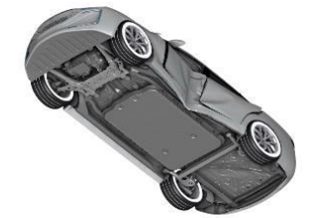The company GESTAMP, along with AZTERLAN Metallurgy Research Center and the Basque Country University UPV/EHU are working on the behavior prediction of 6xxx extruded aluminum series for automotive components and developing models based on their chemical composition and heat treatment, with the main objective of “optimizing and speeding up the product design cycle”.
The simulation of the structural behavior of the diverse components under different dynamic loads is a fundamental aspect of the product development process, which allows to optimize its design with all the safety requirements and guarantees. In case of the development of car structural parts, their ability to absorb impact energy is a critical aspect that must also be aligned with vehicle weight reduction strategies.
In this highly demanding and constantly evolving scenario, in which the development of materials and the redesign of components play a key role, commercial simulation software programs present important limitations associated with the data related to the behavior of certain materials. To overcome this limitation, designers and manufacturers are constantly working on the development of material databases.
However, as explained by the researcher Asier Bakedano (coordinator of Aluminum and Light Materials at AZTERLAN Technology Center), “new machine learning and artificial intelligence technologies offer us new opportunities to face this important challenge, allowing us not only to model, but also to predict how certain characteristics of the material and its manufacturing process will affect the final behavior of the components”.
Following this approach and aimed at improving knowledge and prediction of the behavior of 6xxx series extruded aluminum materials, the AluSmart project consortium, led by the company GESTAMP, is working on predicting the mechanical and fracture properties of extruded aluminum structural components based on of its chemical composition and its thermal treatment. The main objective is “to develop a model capable of predicting the aging cycles, the mechanical and fracture properties of a component based on its elemental chemical composition and the thermal treatment applied. They are critical variables of the product that affect the microstructure of the metal, reflecting on its physical and mechanical properties, both at an static and a dynamic level”.

Crash simulation from a electric vehicle
Structural tests to promote the self-learning of the algorithm
With this horizon, the working team is currently carrying out several structural tests that “will be the training data for the machine learning models (algorithms); for this reason, the generation of a large number of results is very important for the success of the project”. Among the characterizations carried out, the fracture tests aimed at determining the level of plastic deformation at break have a special relevance. In a subsequent pase and after the acquisition of a significant number of results from the tests, the research work will focus on the development and implementation of machine learning models.
“Without any doubt this project will allow to explore the potential of artificial intelligence in the area of materials science and will allow us to delve into fundamental knowledge of aluminum structural components, the second most used material by the automotive industry after steel, accelerating as well product design cycles”.
The AluSmart project is financed by the Elkartek Program of the Basque Government. The project consortium is integrated by the company GESTAMP (project leader), AZTERLAN Metallurgy Research Center and the Basque Country University UPV/EHU.

